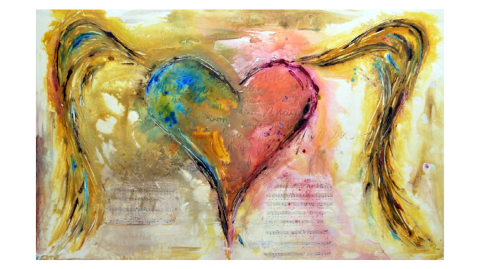Be kind and compassionate to one another, forgiving each other, just as in Christ God forgave you.
--Ephesians 4:32
Dear Friends,
We are now at that time of the holiday season when the triggers are all around us—some image or description that rekindles the spark of a tender recollection. Whether it is a vision of Christmas past, an inspiring story of perseverance, or just a visual affirmation that ‘life is hard,’ they can grab us unexpectedly. Each December, I watch certain commercials with my wife and then look across the couch to see which one of us will swallow the hardest in order to conceal that uninvited lump in our throats. These days the response is typically “darn you, Publix” or “thanks a lot, New York Life” followed by a deep breath or a drastic sniffle (that ad with the different images of agape gets me every time).
Clearly, this reaction is by design. Often these are the catalyst for pleasant memories, but even in the best of times these associations can pull at our heartstrings with the emotional tug and tear of that which is lost. This year, especially, it does not take much to find ourselves hovering over the chaotic waters of grief. We do our best to rise above it, or at best to stay afloat, but it is not without considerable effort for many.
Without help, of course, drowning is a real possibility. Try as we might to avoid it, human experience has provided us with ample opportunity for learning to cope with our losses. It is hard to know where to begin, however, when the need is your own. We are told that grief has to find its voice, but how?
One valuable tool that has come my way this season is a copy of Harold Ivan Smith’s book, A Decembered Grief: Living with Loss While Others are Celebrating. In one particular excerpt, he shares a lesson with a woman on what is called “forgiveness praying.”
“Each day she would specifically forgive someone—until she ran out of people to forgive. Moreover, she was to follow up her prayer by doing a practical act to show that her forgiveness was real—such as writing a letter, making a phone call, offering a gift, trying to restore a broken relationship.
Some people cannot get to the work of grief because they are so busy reciting and rehashing the injustices, slights and failures of people, some of which are unforgivable if not unforgettable.
Sometimes the griever must make the first move in restoring the injury.
Consider giving generous gifts of forgiveness—to yourself for not visiting the nursing home more often, for being too sharp in criticizing other family members who you believe failed to pull their weight. Forgive those who suffer faux pas statements that hurt more than soothe. Forgive your loved one for not taking the doctor’s advice.
Forgive God for ‘taking’ your loved one” (Smith, p. 55).
This may sound much easier said than done (because it is). Nevertheless, it may be enough of a nudge to get us thinking, praying, and perhaps even walking in the light of such grace and healing. It could make a difference.
This Christmas, I hope that it does. Chances are that you’ve already made your list of grievances. Chances are you have already reviewed and refined it more than is necessary. Chances are there is only one thing left to do—forgive.
What would you need to take the next step? From where does your help come? (Ps. 121)
Forgive us our trespasses, Lord, as we forgive those who trespass against us. Help us to forgive…even those that we merely suspect have trespassed against us…or those we unjustly choose to blame…help us to forgive others, Lord, until there are none left to accuse…that includes you, O God. AMEN.
Grace to You,
Darren




